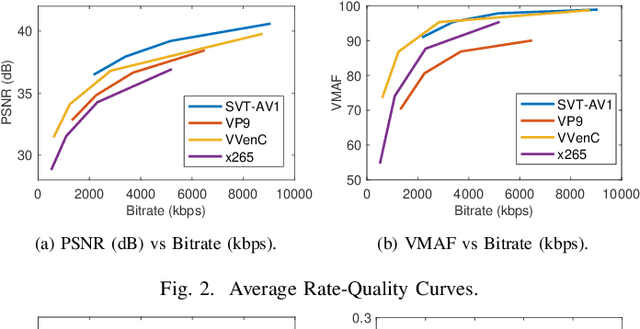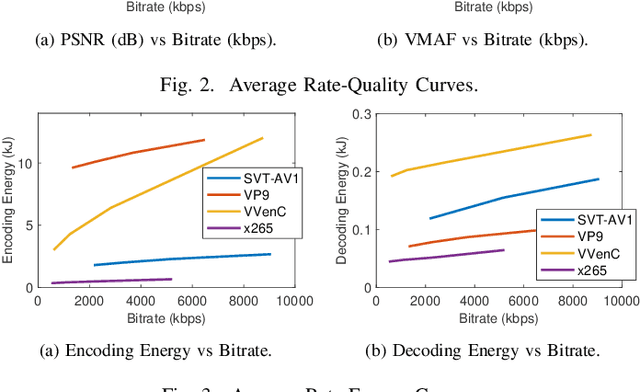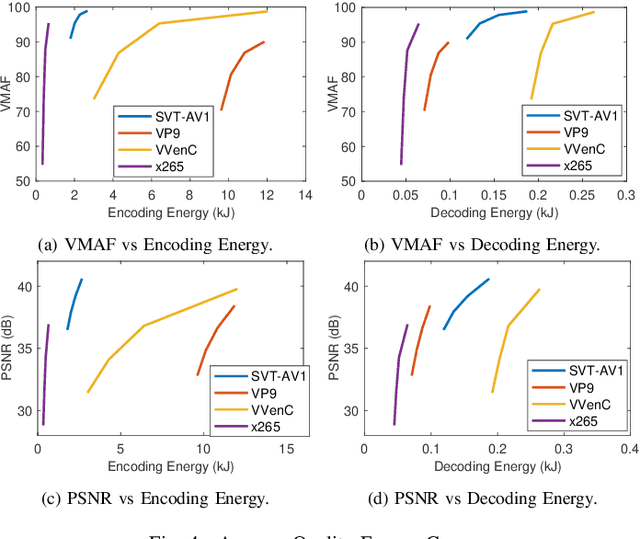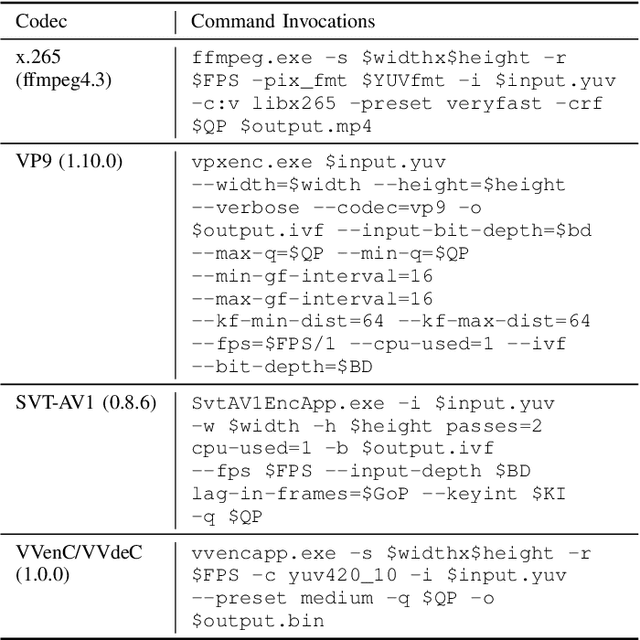Energy-Rate-Quality Tradeoffs of State-of-the-Art Video Codecs
Paper and Code
Oct 02, 2022



The adoption of video conferencing and video communication services, accelerated by COVID-19, has driven a rapid increase in video data traffic. The demand for higher resolutions and quality, the need for immersive video formats, and the newest, more complex video codecs increase the energy consumption in data centers and display devices. In this paper, we explore and compare the energy consumption across optimized state-of-the-art video codecs, SVT-AV1, VVenC/VVdeC, VP9, and x.265. Furthermore, we align the energy usage with various objective quality metrics and the compression performance for a set of video sequences across different resolutions. The results indicate that from the tested codecs and configurations, SVT-AV1 provides the best tradeoff between energy consumption and quality. The reported results aim to serve as a guide towards sustainable video streaming while not compromising the quality of experience of the end user.
 Add to Chrome
Add to Chrome Add to Firefox
Add to Firefox Add to Edge
Add to Edge